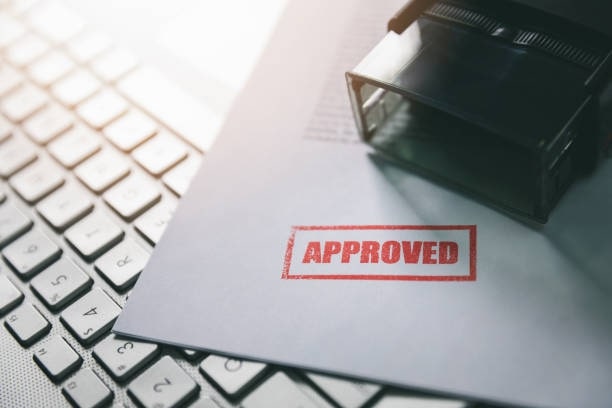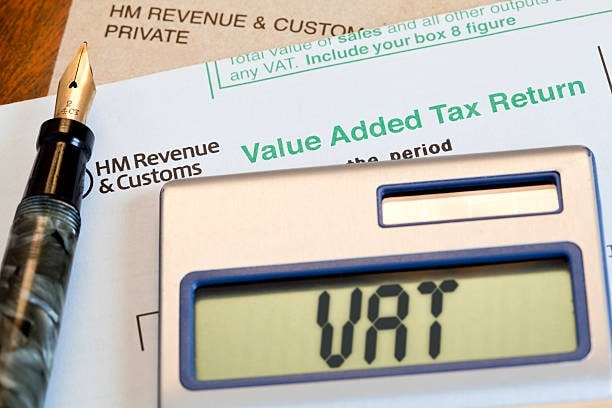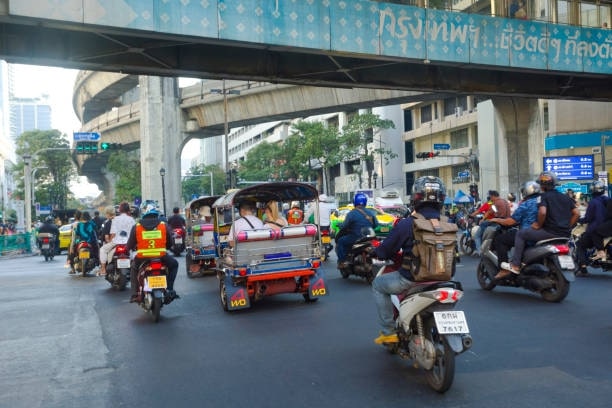Categories > Guides and Tips

Company Registration and Establishment in Thailand [2023]
- An Overview of Incorporating Companies in Thailand
- How to Incorporate Your Company in Thailand
- How to Establish Your Company in Thailand: A Step-by-Step Guide
- Things to Remember When Running an Company in Thailand
- The Common Hurdles and Obstacles for Businesses in Thailand
- FAQs about Company Registration in Thailand
Company registration in Thailand can be a complex process, especially if you are not familiar with the local laws and regulations.
However, with the right guidance and support, it can be a relatively straightforward process
To register a company in Thailand, select a business structure, reserve a name, submit incorporation documents, obtain a tax ID and register for VAT, and acquire necessary licences and permits.
It can take several weeks to complete the process. So, we recommend seeking guidance from experts.
In this guide, we will break down the steps involved in registering your company in Thailand, including the documents you will need to provide, paying your taxes, and the procedures you will need to follow.
Whether you’re a seasoned entrepreneur or new to the game, this guide will help you navigate the process of company registration in Thailand with confidence.
An Overview of Incorporating Companies in Thailand

When starting a new business, one of the most important decisions you’ll make is how to incorporate it. The way you structure your business will impact everything from your taxes to your legal liabilities.
There are several options available, each with its own pros and cons. Here are a few of the common incorporations in Thailand:
| Incorporation Choices | Advantages | Disadvantages |
|---|---|---|
| Sole Proprietorship | ⮕ Easy and inexpensive to set up ⮕ Complete control over the business ⮕ Simple tax reporting | ⮕ Personal liability for business debts and legal issues ⮕ Difficulty raising capital |
| Limited Company | ⮕ Personal liability protection ⮕ Ability to raise capital through stocks ⮕ No double taxation | ⮕ Higher setup costs and fees ⮕ More regulatory requirements and formalities |
| Board of Investment Promotions | ⮕ Tax incentives ⮕ Work permits for foreign employees | ⮕ Applying can be challenging and time-consuming |
How to Incorporate Your Company in Thailand

Are you planning to start a business in Thailand?
When setting up a business in Thailand, one of the essential steps is registering your company with the Department of Business Development (DBD).
It may seem intimidating, but don’t worry, we’ve got you covered!
Step 1: Reserve a company name
- You need to submit three potential names to the Department of Business Development (DBD) for a name search.
- Once a name has been approved, it can be reserved for up to 30 days.
This gives you time to prepare the necessary documents for company registration without worrying about someone else taking the name you want.
Step 2: Organise and submit all necessary documents
The process of registering a company with the DBD involves preparing and submitting the necessary documents and paying the required fees.
The documents typically include:
- the company’s articles of incorporation
- memorandum of association
- list of shareholders and directors
Step 3: Make some changes (if any)
If you need to make any changes to your company, you must do it at the DBD where you initially registered.
Step 4: Apply for additional licence and permit (if needed)
- Depending on the type of business you plan to operate, you may need to obtain additional licences or permits from other government agencies, such as the Ministry of Interior or the Department of Employment.
- For example, if you plan to operate a restaurant or serve alcohol, you will need to obtain a licence from the Ministry of Interior.
Step 5: Wait for the results of the review
- Once submitted, the DBD will review the documents and issue a registration certificate upon approval.
- You will also need to pay a registration fee based on the company’s registered capital
NOTE: For limited companies, there are specific procedures and required documents that you need to follow to complete the registration process.
How to Establish Your Company in Thailand: A Step-by-Step Guide

Starting a business can be a thrilling adventure full of opportunities, but it requires a lot of effort and attention to detail.
By taking the time to plan, research, and execute your business plan, you can establish a strong foundation for long-term success.
Step 1. Acquire necessary licences

The type of licence required can vary depending on the industry and location of your business.
To avoid any fines or even the closure of your business, it’s crucial to research and obtain all the necessary licences and permits. This might involve filling out applications, undergoing inspections, and paying fees.
It can be a bit of a complex process, but it’s definitely worth taking the time to ensure everything is in order.
Step 2. Apply for additional permits (if needed)

In addition to the necessary business licences and VAT registration, some industries may require additional permits or certifications to operate legally in Thailand.
For example, if you plan to operate a restaurant or food business, you’ll need to obtain a food licence from the Ministry of Public Health. Similarly, if you plan to open a bar or serve alcohol, you’ll need to obtain an alcohol licence from the Excise Department.
The requirements for additional permits can vary depending on the industry and location of your business, so it’s important to research the specific requirements.
You can typically find information about the required permits and how to obtain them on the relevant government agency’s website.
Step 3. Locate your office space

Finding the right office space in Thailand can be a daunting task, but it’s essential to consider your business needs and budget when making this decision.
A serviced office is a great option for those looking for a flexible and hassle-free workspace, as it comes fully-furnished and provides access to shared amenities.
On the other hand, traditional office spaces offer more control over the workspace but require a longer lease commitment and more responsibilities.
For businesses looking for long-term stability, purchasing their own office space may be the way to go, but it comes with a significant upfront investment and ongoing expenses.
Whatever option you choose, it’s important to do your research and consider all factors such as location, accessibility, parking, and proximity to public transportation before making a decision.
Step 3.1 Buy furniture and equipment for your office

When it comes to procuring furniture and equipment for your office in Thailand, it’s important to consider your budget and priorities. You may want to prioritise functionality and comfort over aesthetics, or vice versa.
If you opt to purchase new furniture and equipment, it’s a good idea to research local suppliers or international brands with a presence in Thailand. This way, you can be sure of the quality and warranty of the items.
On the other hand, buying second-hand furniture and equipment can save you money, but it’s important to carefully inspect the items for any defects or damage.
Leasing furniture and equipment is a more flexible option, as you can return or exchange items as needed.
However, this may result in higher long-term costs compared to purchasing outright. It’s important to weigh the pros and cons of each option and choose what best fits your business needs and budget.
Step 4. Set up business banking

When setting up a business in Thailand, it’s important to have a local bank account to facilitate business transactions and manage finances.
Here are some steps to follow:
- Research banks in Thailand: There are many banks to choose from in Thailand, both local and international. Research the options and choose a bank that best meets your business needs and preferences.
- Gather necessary documentation: To open a business bank account, you’ll need to provide certain documentation such as your business registration certificate, your tax ID number, and your passport.
- Schedule an appointment with the bank: Once you have the necessary documentation, schedule an appointment with the bank to open the account. It’s recommended to make an appointment ahead of time to ensure that a representative is available to assist you.
- Open the account: During your appointment, you’ll need to provide the required documentation and fill out the necessary forms to open the account. Some banks may also require a minimum deposit to be made at the time of account opening.
- Manage the account: Once your account is open, you can manage it online or through the bank’s mobile app. It’s important to keep track of transactions and regularly reconcile the account to ensure accuracy.
Note: Remember that some banks may require additional documentation or have different account opening procedures, so we recommend checking with your chosen bank ahead of time to ensure that you have all the necessary information.
Step 5. Obtain VAT registration

If your business has an annual turnover of more than 1.8 million baht or is involved in importing or exporting goods, you’ll need to register for VAT.
To start the process, you’ll need to submit an application to the Revenue Department of Thailand.
The application will ask for your business information, such as your name, address, and tax ID number, and also details about your business and expected annual turnover.
Once the application is processed, you’ll receive a VAT registration certificate that should be displayed in your business premises.
You’ll also be assigned a VAT number that must be included in all invoices and receipts. It’s crucial to ensure that you properly collect and remit VAT, as non-compliance can result in penalties and fines.
Step 6. Secure visa and work permits

Securing visas and work permits for your employees in Thailand can be a complex process, but it’s crucial to ensure that your business is operating legally and your employees are protected.
To make sure you have all the necessary documentation, you may want to consider working with a local immigration consultant or lawyer. They can guide you through the application process and ensure that all the required information is included.
It’s important to plan ahead, as the process can take some time, especially if there are any complications or additional documentation required.
You’ll need to provide information about your business, your employees, and the type of work they’ll be doing in Thailand.
The specific visa and work permit required may depend on the nature of the work being performed and the duration of the stay in Thailand.
For example, there may be different requirements for temporary workers versus permanent employees. Make sure to research and understand the specific requirements for your employees to avoid any issues or delays.
Step 7. Obtain a commercial coverage for your business’ protection

Commercial coverage refers to insurance policies that businesses can purchase to protect their operations and assets from various risks.
In Thailand, there are several types of commercial coverage available, including property insurance, liability insurance, and business interruption insurance.
Property insurance can protect a business’s physical assets, such as buildings, equipment, and inventory, from risks such as fire, theft, or natural disasters.
Liability insurance can protect a business from legal liability in case someone is injured or their property is damaged as a result of the business’s operations.
Business interruption insurance can provide coverage for lost income and expenses if a business is forced to close temporarily due to a covered event.
Step 8. Hire excellent staff

Hiring staff in Thailand can be a bit tricky, but it’s certainly doable with some careful planning and attention to local regulations.
Before you start hiring, you’ll need to make sure you have all the necessary documents in order, including a business registration certificate and a tax ID number from the Revenue Department.
Once you’re ready to start recruiting, you can begin interviewing potential candidates.
It’s worth noting that Thai labour laws require employers to provide certain benefits to their employees, such as social security and health insurance.Remember to research these requirements to make sure you’re in compliance with local regulations.
If you’re feeling a bit overwhelmed by the hiring process, working with a local recruitment agency or human resources consultant can be a great option.
They can help you navigate the regulations and provide valuable insights into the local job market. Plus, they can help you find the best candidates for your business.
Things to Remember When Running an Company in Thailand

Running your business Thailand requires a strategic approach that takes into account the unique cultural, legal, and economic factors of the country.
It’s important to have a solid plan in place to ensure long-term success.
1. Manage and overcome cultural differences among your employees

Managing a team of employees in Thailand comes with unique challenges due to cultural differences. To be effective, it’s important to understand and respect these differences.
For example, Thais tend to have a more laid-back social and working culture than Western countries.
They may not express their opinions directly during meetings, so it’s important to follow up with individuals privately to get a better understanding of any potential issues.
Respect for elders is also an important aspect of Thai culture. It’s common courtesy to use formal titles like “khun”, “sir”, or “madam” when addressing them, regardless of your position in the company.
Managing employees in Thailand can present unique challenges due to cultural differences.
However, by taking the time to establish a cross-cultural management system, you can navigate these differences and create a positive work environment for your team.
2. Fulfil tax obligations diligently

As a business owner, it’s important to understand the local tax laws and regulations to ensure that you are compliant and avoid any potential legal issues.
In Thailand, businesses are subject to corporate income tax, value-added tax (VAT), and specific business tax, among others. It’s important to determine which taxes apply to your business and ensure that you file and pay them on time.
Types of Tax Obligations Companies and Business Owners Pay in Thailand
| Corporate Taxation | ⮕ The tax for the income of corporations and businesses. ⮕ In Thailand, the corporate tax rate is 20% for both Thai and foreign companies. ⮕ There are some tax incentives available for companies that invest in certain industries or activities, such as technology or research and development. ⮕ All companies operating in Thailand are required to file an annual tax return, which must be submitted by May 31st of the following year. NOTE: Companies must keep accurate records of their financial transactions and maintain accounting books in accordance with Thai accounting standards. |
| Value Added Tax | ⮕ Value Added Tax (VAT) is a consumption tax that’s imposed on the sale of goods and services ⮕ The current VAT rate in Thailand is set at 7% ⮕ Business owners may be required to register for VAT and charge it to their customers ⮕ The collected VAT must be remitted to the government on a regular basis |
| Withholding Tax | ⮕ Employers in Thailand must deduct the Tax Withholding or Withholding Tax (WT) from employees’ salaries ⮕ The deducted amount should be remitted to the government ⮕ The amount of tax to be withheld depends on the employee’s income and is calculated according to the progressive tax rate structure set by the Revenue Department. |

| Social Security Coverage | ⮕ All employees, including Thai and foreign workers, in Thailand are required to have social security coverage. ⮕ This coverage provides a range of benefits, including medical care, disability and survivorship benefits, and retirement benefits for eligible employees. ⮕ Employers in Thailand are responsible for this, with the contribution rate being 5% for both employers and employees, up to a certain maximum monthly salary. NOTE: Keep in mind that social security coverage is not a substitute for health insurance. |
Group Medical Benefits | ⮕ This is not mandatory, but providing group medical benefits to employees is a great way for businesses to attract and retain talent in Thailand ⮕ Group medical benefits can include a range of coverage, such as outpatient and inpatient care, emergency services, maternity care, dental care, and more ⮕ Employers can choose to include the employees’ dependents in the coverage ⮕ The cost of group medical benefits varies depending on the level of coverage offered and the number of employees enrolled ⮕ Insurance providers can also assist with claims processing and other administrative tasks related to managing group medical benefits program |
Personal Income Tax | ⮕ Personal income tax is levied on an individual’s income, with rates varying depending on the amount of income earned ⮕ Thailand’s tax year runs from January 1 to December 31 ⮕ Tax returns must be filed by the end of March of the following year ⮕ Personal income tax rates in Thailand can be quite high, with the top tax bracket currently at 35% ⮕ Various deductions and allowances available that can help reduce your taxable income and ultimately lower your tax liability |
3. Pay your overseas personnel

When you have overseas personnel, there are a few things you need to keep in mind as a business owner. In Thailand, you need to follow the local payroll and taxation regulations when you have foreign employees working for you.
Just like Thai citizens, foreign employees are also subject to personal income tax. However, the tax rates and brackets for foreign employees may differ from those for Thai citizens.
When it comes to paying your overseas personnel, the currency you choose to pay them in is also important to consider.
If you’re paying them in a currency other than Thai Baht, you may need to factor in the exchange rate and any associated fees for currency conversion.
Last but not least, make sure you are complying with local laws and regulations when employing foreign workers. This may involve obtaining the necessary work permits and visas and following other requirements for foreign workers in Thailand.
| Minimum Monthly Wage | Worker’s Country of Origin |
|---|---|
| 50,000 THB | ⮕ Western European countries ⮕ Australia ⮕ Canada ⮕ Japan ⮕ U.S. |
| 45,000 THB | ⮕ Taiwan ⮕ Hong Kong ⮕ South Korea ⮕ Singapore |
| 35,000 THB | ⮕ Eastern European countries ⮕ Other Asian countries ⮕ Central American countries ⮕ Mexico ⮕ South American countries ⮕ Turkey ⮕ Russia ⮕ South Africa |
| 25,000 THB | ⮕ African countries ⮕ Cambodia ⮕ Myanmar ⮕ Vietnam ⮕ Laos |
4. Manage your expenses by hiring accounting experts

It’s important to keep track of your accounting expenses to ensure that you are properly managing your finances. Accounting expenses can include a variety of costs associated with keeping your financial records in order.
One of the main accounting expenses for businesses is the cost of hiring an accountant or accounting firm to help manage their finances. This can include services such as bookkeeping, financial statement preparation, and tax preparation.
The cost of these services can vary depending on the complexity of your business and the scope of the services provided.
In addition to hiring an accountant, there may be other accounting software or tools that you need to purchase to help manage your finances. These can include accounting software, payroll software, and other financial management tools.
The Common Hurdles and Obstacles for Businesses in Thailand

Operating a business in Thailand may come with various hurdles and obstacles that need to be addressed to ensure success.
| Here are a few examples: Language and cultural barriers: Language barriers and cultural differences can make it challenging to communicate and establish relationships with local employees, customers, and partners. It’s important to have a basic understanding of the local language and culture to navigate these challenges. Bureaucracy and regulations: Thailand has a complex regulatory environment that can be difficult to navigate, particularly for foreign businesses. Obtaining licences and permits can be a time-consuming process, and it’s essential to stay up to date with changes in regulations to avoid penalties or fines. Corruption: Corruption remains an issue in Thailand, particularly in the public sector. Businesses may encounter corruption in the form of bribes or kickbacks, and it’s important to have a zero-tolerance policy and take steps to mitigate the risk of corruption. Infrastructure: Thailand’s infrastructure is generally well-developed in urban areas, but rural areas may have limited access to basic services such as reliable electricity and internet. This can make it challenging to establish and operate a business in these areas. Talent acquisition and retention: Finding and retaining talent in Thailand can be challenging, particularly for specialised or high-skilled positions. It’s important to offer competitive compensation packages and invest in training and development to attract and retain the best employees. Competition: Competition in Thailand’s business landscape can be intense, particularly in sectors such as tourism and manufacturing. We suggest differentiating your business through a unique value proposition and provide exceptional customer service to stand out from competitors. |





